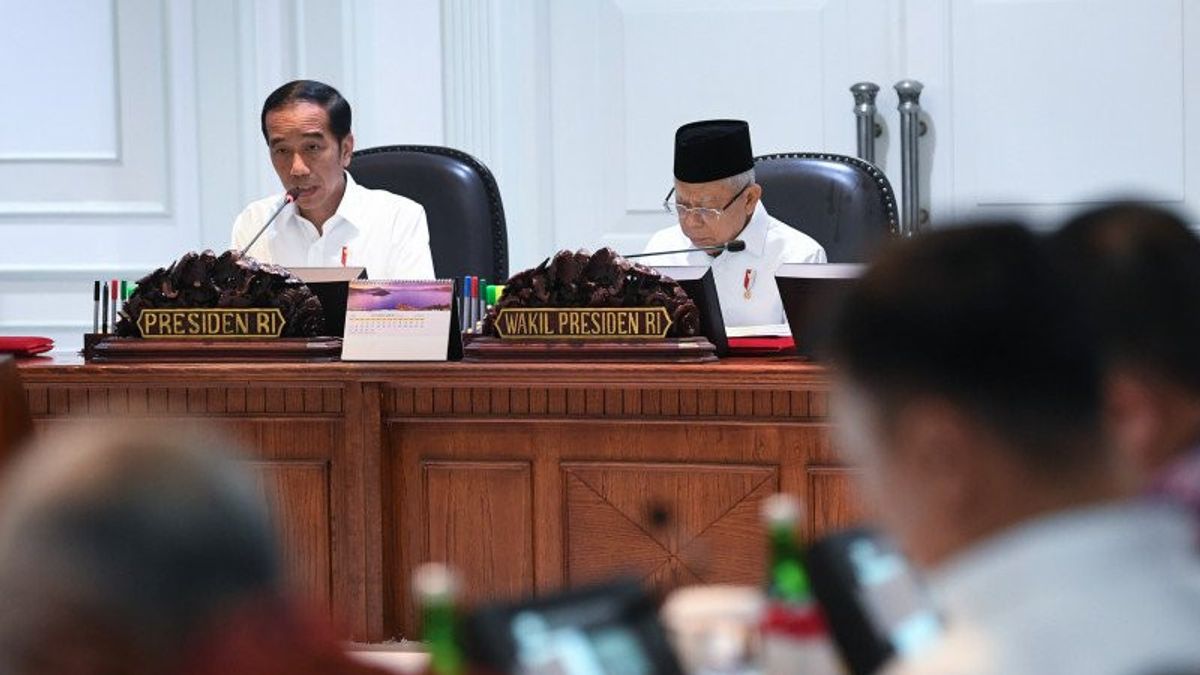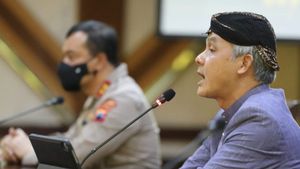JAKARTA - Indonesia Corruption Watch (ICW) urges President Joko Widodo (Jokowi) not only to promise to enact the Draft Law (RUU) on Asset Confiscation. This pressure arises because the Jokowi government is said to have often placed the issue of anti-corruption as mere jargon.
"ICW urges President Jokowi not to just lip service the plan to enact the Bill on Asset Confiscation. Because, after seven years as president, Mr. Jokowi has often put anti-corruption issues as mere jargo without any concrete action to support it," ICW researcher Kurnia Ramadhana told reporters, Monday, December 20.
Not only that, but the anti-corruption activist is also sure that the move to enact the Asset Confiscation Bill will encounter obstacles. This, continued Kurnia, is because the DPR rarely prioritizes laws and regulations that strengthen law enforcement, especially those related to eradicating corruption.
In fact, on the one hand, the Asset Confiscation Bill is an important piece of legislation in efforts to eradicate corruption. According to Kurnia, although currently the state money has been reimbursed to prisoners, the state's losses have not been covered.
"The gap between state losses and replacement money is still very high. For example, according to ICW records, state financial losses in 2020 reached IDR 56 trillion, while the replacement money was only IDR 19 trillion," explained Kurnia.
"This proves that the criminal law approach that uses an in personam approach has not proven effective in recovering state financial losses. In addition, the Asset Confiscation Bill is also in line with Article 54 paragraph (1) letter c of the United Nations Convention Against Corruption (UNCAC)," he added.
SEE ALSO:
Apart from that, there are three other benefits to be gained from enacting the Asset Confiscation Bill. First, it is easier to prove a crime.
The reason, said Kurnia, is that this draft law will no longer talk about individual guilt or proof of malicious intent, but will simply carry out formal evidence standards.
"Simply put, if a criminal act is found and assets have been tainted from the crime, law enforcement can proceed further with the purpose of confiscation," he stressed.
Second, the Asset confiscation Bill is important to be promulgated because it recognizes reverse proof where the owner can be asked to prove that his assets are not related to a particular crime. If in the future this proof cannot be carried out, law enforcement officers can carry out confiscation.
Finally, this draft law can be an answer to the problem of a large number of fugitives in corruption cases who have not been caught.
"If it is enacted, law enforcement can identify the assets of the fugitives and legally process the assets so that they are immediately confiscated for the state," concluded Kurnia.
The English, Chinese, Japanese, Arabic, and French versions are automatically generated by the AI. So there may still be inaccuracies in translating, please always see Indonesian as our main language. (system supported by DigitalSiber.id)
















